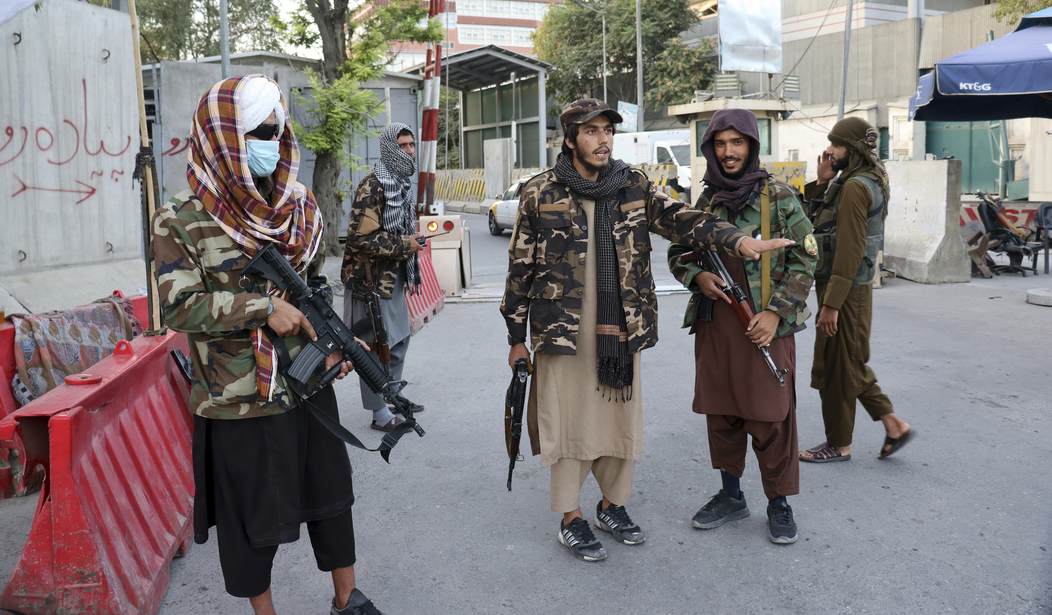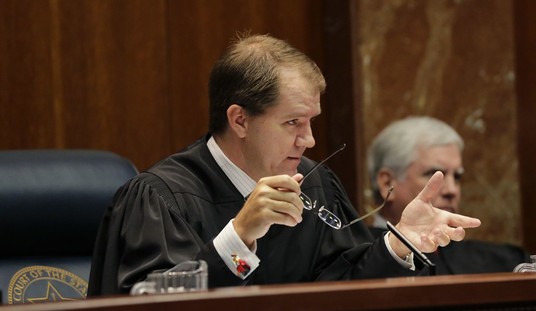Earlier this year, I came across a piece from a publication called Modern Diplomacy that was kind of a trainwreck. It was written by someone who is supposedly an expert on American policy and pushes some pretty laughable claims about gun ownership in the United States.
Now, another writer at the same site has taken a look at recent moves made by the Taliban.
See, when we pulled out, we left a ton of weapons and equipment behind. Now, the Taliban wants to exert its control over that equipment, which sets up this discussion:
The released order of Afghanistan’s Supreme Leader concerning regulation of distribution and use of military weapons and equipment unleashed heated debates among different layers of the international community. Is this a step towards the systematic kind of control or is it a step towards greater Talibanization? The decree is timely, especially because Afghanistan is still a topic of global concern as far as security is concerned. Taliban took over after international forces were withdrawn and they were left behind with sophisticated military equipment. Now, with this directive, the Taliban seeks to directly manage these assets and their utilization under stated goals like ‘to avert the abuse’ of such assets and their utilization ‘for national defense’. This may seem at first glance as an effort to bring a semblance of order into what would otherwise be disarray. But is centralization equivalent to consolidation? History and evidence prove otherwise. This is specifically because when guns are in the hands of uncontrolled societies or in highly centralized power in politically unstable areas, they serve to deepen the internal conflict. The current case of Afghanistan is quite intriguing because this decree is a manifestation of Taliban’s overall plans of domination rather than tolerance or ensuring stability.
I added the emphasis here because they almost hit on the harsh reality of gun control as a general thing.
Now, the author here focused on political stability, and that's understandable, but people need to understand that any nation can be stable right up until it's not. It may not happen overnight, but most countries that have some degree of instability were stable at one time. Even Somalia had stability once upon a time.
So while the United States is stable and has been for a long time, there's no guarantee that will remain the case.
Private gun ownership means that should that "highly centralized power" decide that stability and justice aren't all its cracked up to be, we can fight back.
The Taliban wants control over weapons and equipment because the Taliban craves control. Sure, there are probably arguments to be made about black market arms deals, too, but I don't think they actually care all that much about those except for how the international community might make things difficult for them.
They're a totalitarian regime, after all. They want to call the shots and that means they need to control the guns.
But here in the United States, that's not a problem, right?
Well, I and millions of others aren't interested in taking that chance. We have guns now so that if we need them to protect this country, the Constitution, or our neighbors, we can. We mean to resist tyranny and "instability" if and when it shows up on our nation's doorstep.
From what I see above, it looks like the author was so close to understanding this, but she didn't follow through. In fairness to her, the piece wasn't about gun policy in the United States, so there's no reason she would mention it even if she got it.
But still, there are a lot of people who believe similar things who still call for gun control. It's pathetically sad, really, but what else is new?








Join the conversation as a VIP Member